September 2020
Materials for Mythic GME in French#
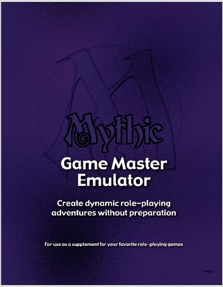
I published in the jdr repo a kind of one-page master's screen for Mythic GME in French.
This game really marked the RPG world by violating many tabletop RPG principles:
- The game master is mandatory: In Mythic GME, he/she isn't anymore (even if sometimes a referee can be useful to decide on odds).
- The story must be determined before playing: In Mythic, you can play a story with just a starting idea.
- Randomness can be inserted intelligently at some key points in the story.
- The game engine is whatever you want, and globally, this is one element among others.
- With this story system, you can play solo.
Mythic GME fostered the imagination of many players and game masters for almost 20 years, especially in the world of solo RPG. What is funny is that some old D&D tables determining, for instance, the way the NPCs react to the PCs can be used easily in a Mythic GME adventure. In some ways, many elements of well-known RPGs can be used in complement with the Fate Chart.
I'm currently analyzing the Mythic GME extensions, Mythic Variation I and II, which propose new rules more adapted to the universes you play in, and more adapted to the kind of questions you're asking.
September 22 2020
D&D and Gustav Mahler#
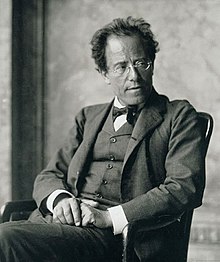
For sure, there is no link between D&D and Mahler, except that they are various manifestations of the human culture, which is quite vague indeed.
The fact is the digging into D&D history is, for me, haoppening at the same time as the digging into my old CDs of the Mahler symphonies. BTW, I miss the 6th for an unknown reason.
I stopped listening to Mahler several years ago when I faced many personal troubles. In a certain way, the sadness of the 9th was talking to me, doing echo to my own pain. Those symphonies are associated to a certain period of my life that I don't recall with pleasure.
Even if my role-playing phase is much older than Mahler symphonies, synchronicity seems to be there, as Jung would have say. Another Gustav...
I created a repo to host the D&D 3.5 original texts, that I found in the Wayback Machine. The idea would be to publish the rough material in a browse-able way in order to progressively being able to integrate elements into programs.
I have been struggling yesterday with the conversion of HTML to Markdown, problem for which I found a not-so-bad solution that I put in my stuff repo. The idea is to parse the HTML (generated from RTF by LibreOffice) and to replace tables with images. In a site that support dynamic images (like the ones we can generate with mkdocs), the material will be mobile friendly.
September 20 2020
D&D and the American appetite for wilderness#
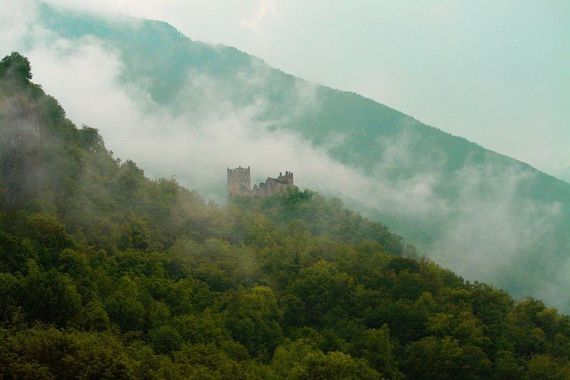
There is something peculiar about D&D, which could explain why I am not so fond of stories of people fighting with monsters in darks labyrinths.
While reading the blog of James Maliszewski, Grognardia, the huge attraction for "wilderness", which seems at the root of D&D, is a bit foreign to me.
Maybe, the reason is cultural. In France, we have a long lasting past and everyone at school studies the Middle-Age, and the Greeks and Romans before that. In a certain way, a "dungeon" is just the biggest tower in a castle, where the lord used to live.
Chivalry, in the French unconscious, is quite different than the picture that is depicted in D&D: knights have a law code and serve the widow and the orphan. They are often in love with a lady in a romantic way. They may face magic but not in the D&D sense. In a way, the Arthurian legend remains our reference.
For a European eye, D&D looks like a western in tunnels with monsters as enemies, instead of Indians. I know, this is a bit provocative, but D&D is not at all a vision of chivalry, as we have traditionally in France. On the contrary: killing monsters, conquer territories and gain treasures to gain levels look, to me, as a caricature of the American dream.
| D&D element | Element of American culture | French traditional chivalry element | Element of French culture |
|---|---|---|---|
| Travel in the wilderness to conquer territories | This really seems as the ideal of the Far West, which is typical American culture | In French, chivalry, knight quests are for God or for a loved one. | Conquering territories is no more considered as a positive thing (colonization is seen as a bad thing) |
| Fight enemies and kill monsters | The violence is part of American culture, as the fighting | The notion of "monster" is present in the European legends but in small doses, probably due to Catholicism | Violence is more psychological and verbal than real in French society (maybe because it is forbidden to have weapons) |
| Gain treasure | Typical American culture about earthly wealth, which is also typical from protestant countries | The knights were fighting for an ideal and not for money, especially money coming from the murder and robbery of other living beings | Catholic tradition that sees money as something dirty |
| Gain experience and progress in the levels | This can be seen as a real appetite for social ascension, and social competition | This appetite also exists but not really in the chivalry tradition | Social progression was also a feature of the Baby Boomers, being in the US or in Europe |
In other words, D&D is a very American game: A universe where violence and murder enables to progress in the society and become more powerful...
Maybe that deserves more details than this quick simplistic psycho-analysis, but that may also explain why, for many French people, D&D is not very exciting.
In France, we have this expression "Gros Bill" ("Big Bill") who is supposed to represent the super-hero knight, able to massacre everyone. If I saw many Gros-Bills, I never saw them craving for wilderness. Because we are old countries, most of us don't dream about conquest of the wild countries.
For sure, D&D can be played like CoC, with more atmosphere and monsters that are so powerful that your should run instead of fighting.
But, discovering progressively the roots of D&D, I think I progress in my understanding of why D&D is not my cup of tea.
September 15 2020
Software help for RPGs?#

For sure, dice are crucial to RPGs. But knowing that many role players play with tables, I am quite surprised of the "paper orientation" of the RPG world. It's obvious that the objective is not to create a graphical RPG, but it could be interesting, for instance, to have random tables managed digitally.
Maybe my reflection is driven by some random game helps or by games like Mythic. But in some cases, being able to generate characters dynamically could be really interesting.
Indeed, I am quite interested by the mix between random elements and driven elements.
If we consider the old school gaming scenarios, the structure is quite often simple:
- A scenario introduction, with the plot (when there is a plot :),
- A location description,
- NPC (quite often monsters) and treasures description.
In the case of the use of a GM emulator, easy software tools could be very interesting, something like a web page enabling to manage more complex randomness in a certain context.
Interesting topic.
September 10 2020
Autum's coming#
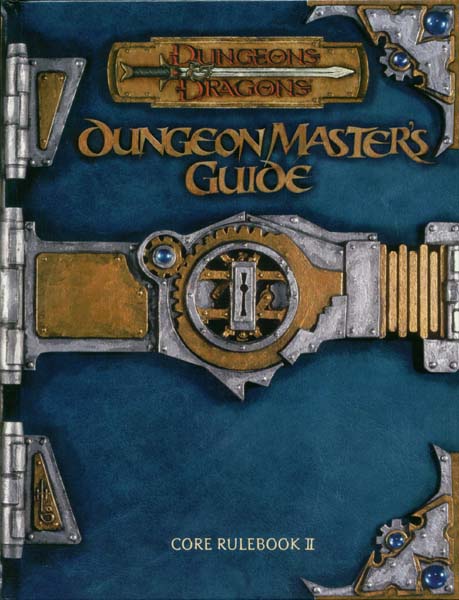
I like Autumn. Living in the south of France, a very hot region in Summer, Autumn is the end of Summer and so the capacity of walking in the mountains again. The period is also the period of rough storms with heavy rain, which is changing after all those months of sunny and hot days.
I just received the Dungeon's Master Guide of D&D 3e. I must admit I am a bit disappointed because the book is not old school, and appears to me as overproduced, nearer from a collection object than to a usable game. But well, I am used to D&D and I must go on.
September 8 2020
The big director's roll#
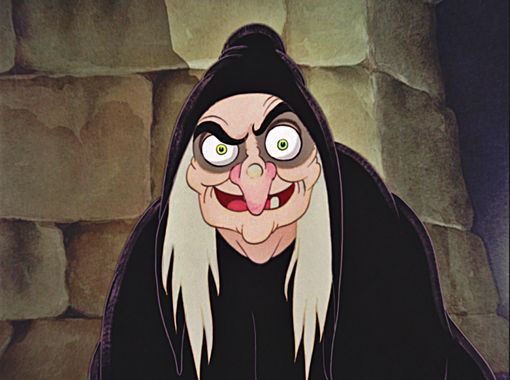
Well, I begin to play with dice at work, trying to predict what will happen.
I faced today a really interesting case. Let me create the scene (maybe it is a wargame rather than a RPG): You have two teams, one is good and the other is bad. In a contract, each team wrote half of a document to present to a prospect. The overall material is bad, undoubtedly. The prospect screams saying: "what kind of s**t is it?"
At first, the hierarchy laughs, saying : "oh yes, no problem, everything's OK, just this stupid prospect that doesn't understand how smart we are. Well, after a while, probably after tectonic management movements (because the prospect reaction has a tendency to climb up the ladder), everyone would like to find a guilty person.
For sure, the good team would be a good choice. Because, if the bad team survived, that means they have a specific protection charm that is not in line with their skills: maybe the charm is Not My Fault. So the attention gets to the good team that did a good job. The director of the bad team has a meeting tomorrow with the director of the good team. Indeed, as the team leader of the good team predicted it with his It Smells like Crap psionic power. Working from that prediction, the good team prepared the place for battle with many traps that are reinforced by the Hidden Truth potion.
I calculated the odds of the bad director: 25% of being able to convince to good director, after all bonuses and penalties applied. I rolled a 98! Uh! Critical failure...
We'll see tomorrow if my Oracle begins to work!
September 7 2020
Getting public?#
For now, this blog is quite hidden, which is nice. That enables me to dig into the recent (or less recent) RPG story. I kinda like to read the various game systems and compare them.
I went recently through old stuff of mine: Simulacres, for instance which is a French game as I dislike them. The game system could have been innovative, but instead it is complicated and even a bit pretentious. I really dislike this feature in French personality: bragging as if French people had invented the hot water (French expression). Nevertheless, I love France and the French. But I would like to see more really creative stuff, playable stuff, modest, optimized, efficient, creative, straight to the point stuff, than those crappy "I am the best and I teach you" products.
In the past, many game designers have indulged the pleasure of farting higher than their asses (other French expression, rather sympathetic this one), and I dislike it. I would say that Croc is probably one of a kind, that did not, or at least I don't remember. Maybe also the one who created the French RPG where you play lycanthropes. I'll find the name back.
Well, the fact is, there are many RPGs that I find unplayable, but they don't feel as if they were lecturing me on something. That's the power of Americans. There is so much competition, that people try their best to do the best product. I see also a certain kind of "focus" in some American games. We're here for something particular: role-playing in a certain universe, and not benefiting from that tribune to insinuate political of social-crap stuff. A game is a game and no moral lesson from your grand-pa.
September 7 2020
The winning couple for a RPG starting now with no preparation?#
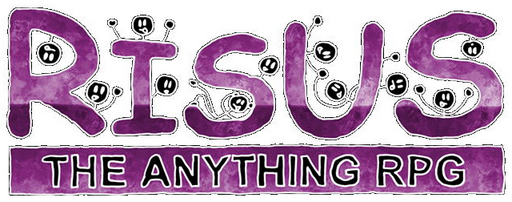
I analyzed extensively the Risus RPG (which is short so that didn't take much time) and created a flowchart to sum-up this micro-game (in French). Yes, my intention is to translate stuff when I can and when the license enables it. France is a great country for RPGs, even if I often find the French RPG a bit patronizing... As the French maybe.
Anyway, in order to play without any preparation, nor at the game mechanics level, or at the scenario level, maybe the winning couple is Risus + Mythic.
Risus is a funny game with very simple game mechanics, that are similar to some other mini-RPGs such as Cthulhu Dark (French version) or the children game FirstFable (French version) or even the very micro-game Roll for Shoes (French version).
I think the emergence of mini-RPGs is the proof of some RPG players getting old. When you are young, you are keen to work hard in very large rule books. When you are older, you can run on the accumulated capacities of GM-ing that you have accumulated for so many years.
The problem of older players is, for sure, the availability of other players. When everyone has its life, it's not so easy to meet. So, quite often, the sessions are scarcer, and with less players (unless you enroll your own children). For that, simple game engines can be a good way to address the rule part preparation. Remains the adventure itself for which you can use many tools: generators or even GM emulators if you really don't have the time to prepare a story.
Concerning GM emulation, I think it would be great to use it inside a pre-existing universe. I have to investigate on that.
September 7 2020
A very creative period#

It's been a long time since I did not have a look to the RPG world, almost 25 years! For sure, I discovered that a multitude of RPGs and RPG engines were created in 25 years, and some of them seem to me as particularly notable.
One of them is Mythic GM Emulator. This engine defined a new way to envisage to RPG by playing adventures with a level of randomness and possibly with no GM. I will write more about that game soon. I must admit that, a long time ago, I know many players that would have been greatly satisfied with that kind of engine.
This creative period is very interesting because, for the RPG player and GM, there are plenty of offers, and most of them quite affordable. Many are Creative Commons or open source, or free. There is also the dominant position of DriveThruRPG as a global dealer of RPGs.
I can see many great evolutions in the RPG universe in those last years :
- The development of Internet enabled many independant authors to create very interesting material, very often for a limited price.
- The development of print on demand enabled also to differentiate the selling of PDFs from the selling of printed manuals, which is great, considering the disappearance of many gaming shops (at least in France).
- The SRD 3.5 opened the door to re-interpretations of old school ways of playing RPGs, which can be a good thing. Games should offer many variations and attract several kinds of players.
On this topic, I started reading the blog of James Maliszewski, Grogniardia. It is very intesting and enables me to catch on with the RPG world. There are some good moments, in this blog, about the old school RPG gaming, mostly based on the the 2 first editions of D&D (OD&D and Holmes mainly). Even if I was never a player of D&D, the old school is talking to me. The age, maybe. The passion for CoC also where I find the same kind of objectives: play with not so many rules, have fun, and improvise. Maybe we are not so far from each other after all.
The fact is, the period from 2000 to 2010 seems very creative, whereas I am not so sure that the following decade was (the one that is terminating now). I have to investigate.
In some dimensions, I understand old school fanatics to be sad that things changed. But on the other hand, we still have many choices in the offer, so much actually that searching for the product that corresponds to you can be quite long. But I think we should not complain. It is just a new era of RPG with several generations playing the same kind of games and so expecting different things from it.
For sure, everyone is not playing a single "universal" game, but, without being a specialist, when I see all the supplements produced by Paizo on PathFinder, I wonder if most players are not still concentrated on heroic-fantasy games around the D&D rules (being 3rd edition or another).
September 7 2020